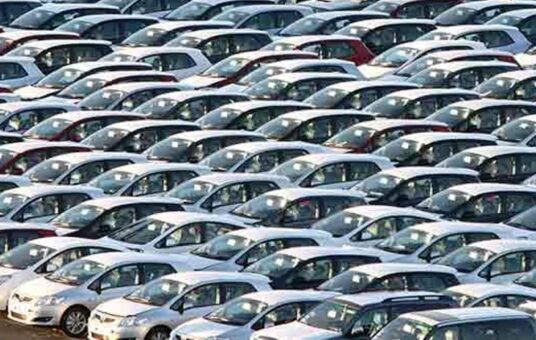ISLAMABAD: The prices of essential items in Pakistan have registered a growth of 32.82 per cent Year on Year (YoY) basis by week ended July 21, 2022.
According to weekly inflation based on Sensitive Price Indicator (SPI) data released by Pakistan Bureau of Statistics (PBS), the prices of essential items increased by 32.82 per cent by week ended July 21, 2022 when compared with July 22, 2022.
READ MORE: Pakistan inflation crosses 33% on high petroleum prices
The SPI is computed on weekly basis to assess the price movements of essential commodities at shorter interval of time so as to review the price situation in the country.
The SPI comprises of 51 essential items collected from 50 markets in 17 cities of the country.
The year on year trend depicts an increase of 32.82 per cent, Diesel (106.16 per cent), Petrol (103.34 per cent), Pulse Masoor (91.29 per cent), Onions (88.46 per cent), Vegetable Ghee 1 Kg (76.85 per cent), Mustard Oil (75.78 per cent), Cooking Oil 5 litre (75.35 per cent), Vegetable Ghee 2.5 Kg (71.71 per cent), Washing Soap (60.25 per cent), Chicken (58.41 per cent), Gents Sponge Chappal (52.21 per cent), Pulse Gram (51.46 per cent), Garlic (43.70 per cent) and LPG (40.47 per cent).
READ MORE: Petroleum prices in Pakistan push inflation 13-year high
While major decrease observed in the prices of Chillies Powdered (43.42 per cent), Sugar (15.51 per cent), Tomatoes (6.18 per cent), Gur (2.72 per cent) and Pulse Moong (0.72 per cent).
The SPI for the current week ended on July 21, 2022 recorded a decrease of 0.22 per cent. Decrease observed in the prices of food items, Tomatoes (7.04 per cent), Bananas (3.34 per cent), Vegetable Ghee 1 Kg (1.14 per cent), Onions (0.46 per cent), Sugar (0.44 per cent), Vegetable Ghee 2.5 Kg (0.42 per cent), Gur (0.32 per cent) and Rice Basmati Broken (0.19 per cent), non-food items Diesel (14.62 per cent) and Petrol (7.41 per cent), with joint impact of (-1.03 per cent) into the overall SPI for combined group of (-0.22 per cent).
READ MORE: Average inflation estimated up to 12% in FY22
On the other hand, an increase observed in the prices of Chicken (3.80 per cent), Georgette (3.44 per cent), Shirting
(2.53 per cent), Garlic (2.25 per cent), Pulse Mash (2.07 per cent), Potatoes (1.56 per cent), Pulse Masoor (1.43 per cent), Pulse Moong (1.39 per cent), Cooking Oil 5 litre (1.35 per cent) and Tea Lipton (1.29 per cent).
During the week, out of 51 items, prices of 31 (60.78 per cent) items increased, 11 (21.57 per cent) items decreased and 09 (17.65 per cent) items remained stable.




